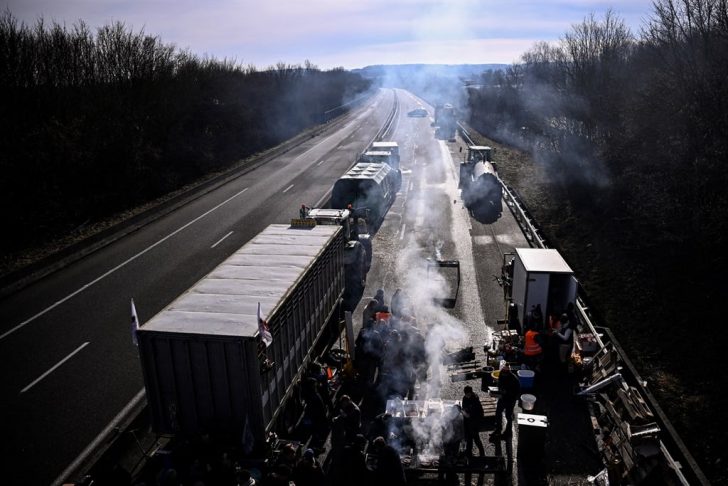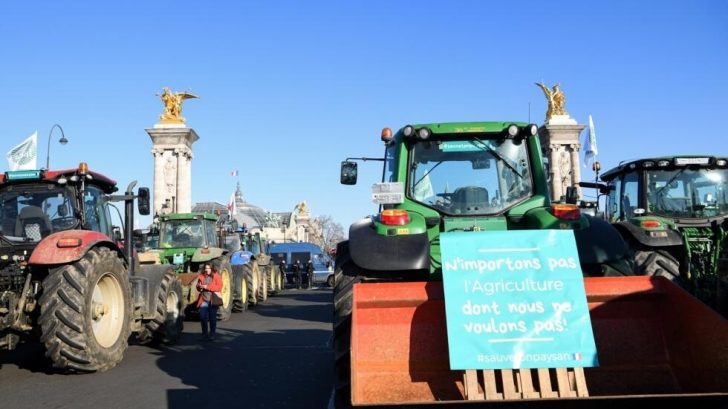Paris, a city synonymous with art and elegance, faced an unprecedented event this past Sunday. In an act of environmental advocacy, two climate activists targeted the Mona Lisa - not with vandalism, but with a can of soup. This unusual protest inside the Louvre Museum has stirred a significant conversation about climate action and the value of art in society.
The activists, wearing shirts emblazoned with 'FOOD RIPOSTE,' breached security barriers at the Louvre and flung soup at the protective glass of Leonardo da Vinci's masterpiece. Their rallying cry questioned the prioritization of art over the right to sustainable and healthy food.

Elle / Angry activists hurl soup at ‘Mona Lisa’ asking if a mere painting is more important than the right to healthy food.
The incident, leading to their arrest, has thrown a spotlight on the 'Food Riposte' group, which demands a radical shift in France's approach to food sustainability and farming.
Government Under Pressure as Farmers and Activists Unite
In an interesting turn of events, this act of protest at the Louvre coincided with a massive mobilization by French farmers, adding a layer of complexity to the government's challenges. The farmers, burdened by economic strains and policy grievances, have taken a bold step to voice their concerns.
As the city recovers from the shock at the Louvre, another pressing issue looms. French farmers, facing many challenges, including inadequate compensation for their produce, bureaucratic complexities, and competition from cheap imports, have decided to make a stand. Their strategy is to encircle Paris, leveraging the power of their tractors and their unity.

The Talks / French government is heightening security as the Tractor Protest targets a siege on the French capital.
Mobilization on the Move as Farmers Gear Up
The farmers, primarily from the Rural Coordination Union in the Lot-et-Garonne region, announced plans to converge on the Rungis International Market using their tractors. This move is more than a symbolic gesture. It is a strategic blockade highlighting farmers' crucial role in feeding the city.
France's two major farmers' unions have declared their intention to blockade all major routes into Paris, effectively putting the city under siege. Their goal is to force the government's hand, demanding attention and action on their grievances.
The Capital's Response
In anticipation of the farmers' blockade, Interior Minister Gerald Darmanin has orchestrated a significant deployment of security forces. A staggering 15,000 officers are set to guard the city, with particular attention to preventing blockades at key sites such as airports and the Rungis Market.

Marca / Newly elected Prime Minister Gabriel Attal pays a visit to a farm in Indre-et-Loire - which is a gesture of acknowledgment of the farmers' hardships.
Darmanin's strategy includes a ban on farmer convoys entering the city and a heightened state of alert on the eight highways leading to Paris. He has urged citizens to prepare for significant disruptions, emphasizing the severity of the situation.
Analysts anticipate the upcoming days are crucial for Paris. Will the city known for its romantic charm and artistic legacy become a battleground for environmental and agricultural activism? Or will these events usher in a new era of dialogue and understanding between the government, farmers, and activists? Only time will tell.